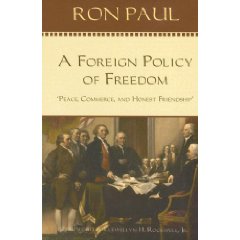 Gems by Kennedy, can safely skip the rest, January 7, 2008
Gems by Kennedy, can safely skip the rest, January 7, 2008
Paul Kennedy (ed)
I've had this book in my library for many years, but finally pulled it down for a flight to Oklahoma. Bottom line: the gems from the editor in the introduction and conclusion are alone worth the price of the book, you can safely disregard virtually all else. At the end of this review I list some more useful books on grand strategy that merit being read in their entirety.
This book is 17 years old, and hence does not reflect the 4th generation through 7th generation warfare thinking of Max Manwaring, Steve Metz, myself and many others, nor does it reflect the globalization versus jihad and the class war of immoral capitalism.
Gems:
+ Grand strategy is about LONG-TERM interests, not a single Administration's “legacy.”
+ Grand strategy demands the integration of the political, economic, and military (this is not good enough. The US military uses DIME for diplomatic, informational, military, and economic, but my own matrix, documented in my early papers at OSS.Net, distinguishes among:
– Political-legal-military
– Socio-economic
– Ideo-cultural
– Techno-demographic
– Natural-geographic
More recently, to help a presidential contender, I took the ten-high level threats to humanity spelled out in A More Secure World: Our Shared Responsibility–Report of the Secretary-General's High-level Panel on Threats, Challenges and Change, reviewed all the Mandate for Change books going back 20 years, and identified the following twelve policy areas that must be harmonized over time AND (this is IMPORTANT): demonstrated to Brazil, China, India, Indonesia, Iran, Russia, Venezuela, and Wild Cards, so they do not repeat our mistakes.
The ten grand strategy LONG-TERM policies are:
– Agriculture
– Diplomacy
– Economy
– Education
– Energy
– Family
– Health
– Immigration
– Justice
– Security
– Society
– Water
+ Moral resources join human and technical and economic resources as being fundamental to ways and means.
+ Husbanding and managing natural resources for the long-term is vital.
+ Diplomacy is vital (the US spent $30B on this in 2007, against $950B on waging war–in 2008 the Department of State is being down-sized to help pay for the Iraq debacle–this is plain NUTS.
+ Flexibility and frequent adaptation are essential (as opposed to the village idiot mantra, “stay the course”)
+ A true grand strategy has at least as much to do about maintaining a prosperous peace as it does with executing a costly war.
+ Balance in all things among military and non-military, short and long term etc. is critical attribute of sound grand strategy.
+ The US is now strategically vulnerable on all fronts, not least because we allowed our corporations to externalize costs and eliminate home-front capabilities without regard to national prosperity or security.
+ The elements of grand strategy have a multiplier effect on one another. If they are left unattended, the Nation hollows out.
+ Armed forces should be able to deal with multiple contingencies, not just a worst case scenario (see my Joint Forces Quarterly article on the need for four forces after next: Big War, Small War, Peace War, and Homeland Defense.
+ The debt and future unfunded obligations that the Bush-Cheney regime have imposed on future generations are not just irresponsible (the author's view) but constitute high crimes meriting impeachment (my view).
I would love to see the editor of this book convene a grand strategy summit in early 2008, in order to place before We the People, and the varied contenders for the Presidency, a balanced budget 10 years into the future, as a foundation for a national conversation.
A few other books on strategy:
Modern Strategy
The Search for Security: A U.S. Grand Strategy for the Twenty-First Century
The Unconquerable World: Power, Nonviolence, and the Will of the People
The Sorrows of Empire: Militarism, Secrecy, and the End of the Republic (The American Empire Project)
Breaking the Real Axis of Evil: How to Oust the World's Last Dictators by 2025
Failed States: The Abuse of Power and the Assault on Democracy
Under Clinton as well as Bush, the USA made love to 42 of 44 dictators, and prostituted itself to the Saudis and the Israelis.
Under Bush-Cheney, failed states went from 75 in 2005 to 177 in 2007. It is my personal view that Bush should be locked in a closet, Cheney impeached and hanged if convicted (see my itemization of his documented crimes at Vice: Dick Cheney and the Hijacking of the American Presidency, and McCain made our caretaker president with a Democratic vice president. In grand strategy terms, Bush the idiot and Cheney the war criminal have not only burned the White House to the ground, they have burned our seed corn, mortgaged our future, alienated the entire planet, and disgraced the Republic.









